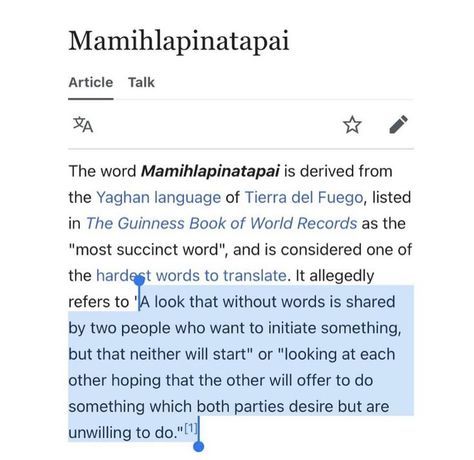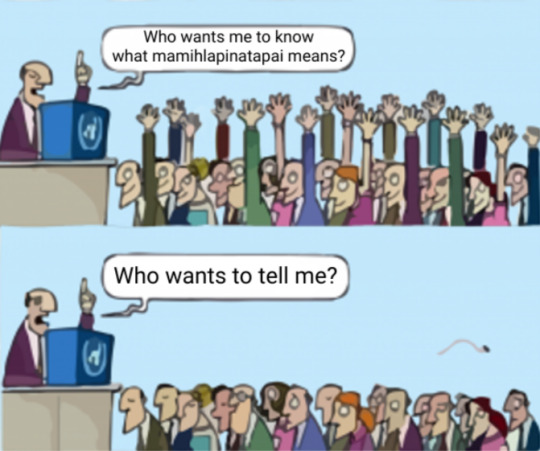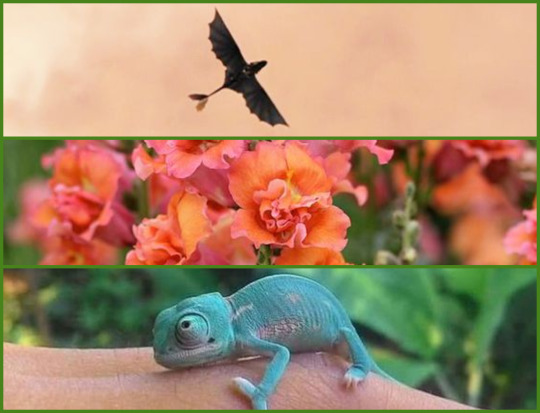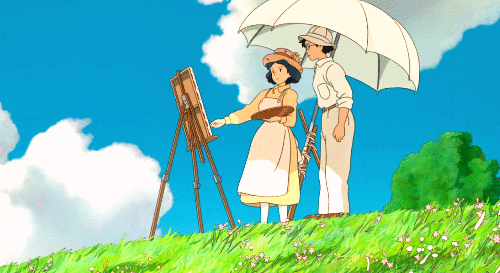#Yaghan Language
Explore tagged Tumblr posts
Text
Excavating a Language at the End of the World
How an Old Dictionary is Revealing New Perspectives on an Indigenous Culture.
— By Katarina Zimmer | July 31, 2024

Image: Shutterstock
Deep in the southern hemisphere, where frigid waves lap against the toe of the South American continent, the sea has no single name. Locals have called it tāralömbi when the water is perfectly calm. Čilamaii are the swells that gather along the coast, mötālömön is the roughening of the water by western breezes. Döna is the term when certain winds ruffle the ocean’s surface in such a way that the movement of fish underneath cannot be discerned and canoes must return ashore.
The Indigenous Yaghan people who have spoken these words are native to Tierra del Fuego—the mosaic of islands, fjords, channels, bays, and coves created by the submerged foot of the Andean mountains in southern Argentina and Chile. The Yaghan and their ancestors are thought to have persisted in this harsh, windy, and cold seascape for thousands of years. There, they have built canoes, from which they hunted sea lions and seals with harpoons. They have caught fish, gathered mussels, made ornaments, and celebrated rites of passage. They have roamed far and wide.
The last truly native speaker of Yaghan, Cristina Calderón, died in 2022. Up to a few hundred members of the group are still alive today—including Calderón’s granddaughter Cristina Zárraga and others who are working to revitalize the language; Yaghan is classified as “dormant” by the Endangered Languages Project.
Dictionaries, it turns out, can be excavated for rich information missing from the archeological record.
Although archaeologists have long been fascinated by the deep history of this seafaring, nomadic people, many of the physical remains their ancestors left behind have been lost to time. Fortunately, they have also left clues in the Yaghan language.
The Yaghan words for the sea were exhumed from a 19th-century Yaghan-English dictionary compiled in the late 1800s by an Anglican missionary. In a recent paper in the International Journal of Historical Archaeology, a team of Norwegian scholars argue that studying this historical snapshot of Yaghan could yield important clues about these people’s lives over the centuries. The same approach could be used for potentially hundreds of other languages, dead, alive, or dormant, across the globe to better understand old ways of life, ancient ecologies, and humans’ connection to the landscape.
Dictionaries, Such As The One Created For The Yaghan Language, It Turns Out, Can Be Excavated For Rich and Nuanced Information Missing From The Physical Archeological Record.
“You could think about language in a similar way as we think about the archaeological sites in a landscape,” says the lead author of the new research, archaeologist Jo Sindre Eidshaug of the Norwegian University of Science and Technology’s Marine Ventures project, an international archaeological research effort. Eidshaug views language as something that “settles” a landscape just like physical artifacts, as people develop knowledge and vocabulary in places where they spent most of their time.
“This kind of research gives us a new tool to understand some [questions about] the life of these people in the past,” adds Angélica Tivoli, an archaeologist at the Austral Center for Scientific Research of the National Scientific and Technical Research Council in Ushuaia, Argentina, who wasn’t involved in the new work.
Today, while language revitalization efforts of Zárraga and others are underway, little Yaghan is currently spoken in Tierra del Fuego. The Yaghan culture and language underwent a devastating decline after Europeans arrived. In the 1880s, about 90 percent of the Yaghan people died from infectious diseases Europeans brought. The decline continued into the 20th century, when many Yaghans continued to die prematurely and faced discrimination for speaking the language. Today’s Yaghan people still fashion traditional harpoon points of whale bone and weave baskets, nowadays mostly to sell to tourists, but they can no longer canoe or boat freely due to restrictions by the Chilean Navy.
Thomas Bridges, who constructed the dictionary, first met the Yaghans as a teenager in 1856 and later lived with them for 30 years. Carefully documenting their language and culture helped Bridges to translate the Gospel of Luke into Yaghan, as part of Anglican missionary tradition to make the Bible accessible in local languages. But while a complete Yaghan Bible may never have come to fruition, Bridges’ dictionary includes about 32,000 words. “That level of detail he was documenting—it’s so beautiful,” says Oxford University ornithologist Andrew Gosler, research director of the Ethno-Ornithology World Atlas which collects Indigenous knowledge on birds. “To be able to document that kind of detail,” he says, demonstrates a closeness with the native speakers.

Grandmother Tongue: Cristina Calderón, pictured here, was the last known truly native speaker of Yaghan. She died in 2022, but her granddaughter Cristina Zárraga and others are working to revitalize the language. Historical perspectives, like that from the newly analyzed dictionary, help enrich contemporary understanding of the culture’s deep history—and connection with the landscape of Tierra del Fuego. Photo By: Víctor Alejandro Correa Rueda/Wikimedia Commons
Because Bridges was merely striving to record the Yaghan vocabulary as comprehensively as possible, his dictionary may be less colored by prejudices and personal agendas than ethnographic reports of the Yaghan by other missionaries and travelers, Eidshaug says. But still, the dictionary is limited in the kinds of questions about the past it can answer. Languages change over time, so it’s unlikely, for example, to shed light on deep archeological questions, such as the origins of the first marine hunter-gatherers in Tierra del Fuego some 7,000 years ago. Or to necessarily give a full picture of the richness and breadth of Yaghan life.
In other places, like Australia, male linguists have been historically more likely to ask men than women about their practices, documenting little on activities traditionally carried out by women, notes linguist Luisa Miceli of the University of Western Australia. Bridges also mostly worked with only one Yaghan couple—Okokko and Camilenna—to understand the language, possibly limiting his view of the communities’ activities as a whole, Gosler says. And, many concepts in Yaghan are so specific to culture and place that they’re hard, if not impossible, to fully encapsulate in other languages, adds Zárraga, who learned the language as an adult from her grandmother.
But the dictionary might have encoded detailed knowledge about the kinds of resources, practices, and deep environmental understanding that were assembled over hundreds or thousands of years in Tierra del Fuego, much of which hasn’t been preserved in the archeological record. “The kind of environmental knowledge that is picked up in this language has an antiquity to it,” Eidshaug says.
Most Physical Traces of Yaghan Culture, Like Any Remnants of Foraged Feasts, Were Lost To Time.
Wherever they went, Yaghans accumulated knowledge and vocabulary about their environment—the climate, the sea and its inhabitants, the coastline, the beach, and the forested hinterlands of Tierra del Fuego. Archaeological studies have mostly focused on shell middens along the coast—ring-shaped piles of shells that were discarded around dwellings—where animal bones and bone tools were preserved thanks to the alkaline chemistry of the shells.
The dictionary catalogs commonly hunted and foraged foods that don’t preserve—fast-degrading things like crab shells, berries, and fungi—in line with some ethnographic reports. Eidshaug counted 48 Yaghan terms for local fungi, many that describe their ripening in rich detail. For example, auačix, the round yellow summer fungus that grows on the šöšči tree: čikidönara describes immature fungi; pöša the second stage just before the fungus opens in holes and gets puffy; and dönara is when they are fully ripe, shortly after falling from the trees.
Most physical traces of the central vehicle of Yaghan culture, the bark canoe, like any remnants of auačix feasts, were also lost to time. Yet the dictionary describes in detail the resources and strategies involved in canoe-making. Bark is cut from the šöšči tree, and wood fiber called uri is used for sewing. Hūšun—seed stalks of wild celery—are sewn as pads into the seams to make them waterproof. Tstāgi soil is used to cement the seams. Tatega—pieces of young smooth bark—are attached to the canoe’s upper edges to protect paddlers from blisters. Through words like these, “we get a broader picture of the material culture,” Eidshaug says.

By Any Other Name: While trying to better understand the Yaghan language and culture—in order to craft translated Bible verse—a 19th-century Anglican missionary ended up creating a detailed map of the Indigenous group’s local knowledge and worldviews within his handwritten dictionary. Here, he documented the many Yaghan words for funguses. Credit: Yahgan Dictionary, 1865, hosted on Patagonia Bookshelf.
The dictionary also offers a window into some of the intangibles of Yaghan culture and worldview. Some entries pertain to rituals, such as kīna, an initiation ceremony for boys aged 12 to 17. The Yaghan word “to go” is often combined with prefixes to indicate direction; some denote the cardinal directions like north and south, but others indicate “toward land” or “away from shore,” illustrating how people mentally divided their landscape. Other entries explain how Yaghans kept time according to the seasonal changes in nature around them. Čgaiaŋgūta is the season for ripe auačix fungus. Čīyāgörana is the season when šöšči tree bark loosens, hākūa for making spring canoes. Iūan is the time when older crabs carry the younger ones, čīiūaiella the time after they’ve separated.
Information buried in the dictionary might also help interpret the physical archeological record. In the dictionary, for instance, Uštānim is described as a porpoise jaw used as a comb. Isöska is the lower jaw bone of a whale used as spear bones. Dictionary entries of this type could help archaeologists make sense of a hodgepodge of bones found underneath shell middens, and perhaps provide important context to certain tools, Tivoli says. “Maybe it’s a way of calling our attention to look deeper into the archaeological record,” she says.
Many nouns describe local animals, which represent a third of the dictionary. The wealth of different terms for certain animals—such as for shellfish—may reflect a recent increase in their importance as a resource relative to other creatures.
This new, linguistic approach to uncovering more about a long-lived culture as described in Eidshaug’s paper is quite valuable, says archaeologist Flavia Morello of Chile’s Institute of Patagonia and the Cape Horn International Center, both part of the University of Magallanes. It shows how dictionaries can act as gateways to unique cultures and in doing so help foster a deeper societal appreciation for cultural diversity and the kinds of relationships humans can cultivate with landscapes. “It’s very inspiring as a paper,” she says.
Archaeologists elsewhere are increasingly interested in leveraging language in similar ways. Miceli and her colleagues recently published a pilot study to explore what kind of information they could glean—from dictionaries of 10 Aboriginal languages in Australia—about domestic fire use, and whether this could be useful in guiding archaeologists in excavating sites, Miceli says. Past collaborations between archaeologists and linguists have often centered on answering questions about the likely homeland of ancestral languages, and how and why they spread, rather than using vocabulary to help with archaeological excavations. “That, I think, is quite new,” Miceli says.

Watertight Insights: Many of the physical artifacts of the Yaghan people—whose ancestors have occupied Tierra del Fuego likely for thousands of years—have been lost to time and harsh weather. By digging through the 19th-century dictionary, scholars were able to learn more about the details of how people once made the canoes that plied the area’s waters. Photo courtesy of Springer Link.
Eidshaug and his colleagues also applied this same proof of concept to a dictionary of Norwegian as it was spoken among coastal fisher-farmers and other people in the area in the 1840s. And there are many more old dictionaries of languages waiting to be excavated from archive shelves.
In the case of the Yaghan, the hope is that such investigations not only answer archaeological curiosities but also help the living communities engage more deeply with their past. “We’ve connected several times with archaeologists who study artifacts and middens, and it has always been an interesting topic for us Yaghans,” says Zárraga, who spoke with me through an interpreter from her native Spanish language.
Zárraga spent a decade living with her grandmother, learning Yaghan practices, values, and language—and about her grandmother’s experience as the culture around her eroded. “It was … very pure cultural knowledge that my grandmother had, through the language,” Zárraga recalls. She is working to carry this ancestral knowledge forward in time. She’s already written two educational books on the Yaghan language and has plans for a Yaghan-Spanish dictionary. Eidshaug, meanwhile, has digitized Bridges’ dictionary to make it more easily accessible.
Though media reports often described her grandmother as the last Yaghan speaker, Zárraga hopes her efforts will ensure that the language and its embedded information will not molder in archives, and that the unique culture it described won’t go the same way. “That’s why it’s very, very important, all of these things that my grandma gave me,” she says. “So we are not the last ones.”
— Katarina Zimmer is a Science and Environment Journalist Currently Based in Germany.
#Nautilus#Excavation#Language#Farthest Part of the World 🌎#Old Dictionary#Revelation#New Perspective#Indigenous Culture#Yaghan Language#Rich | Nuanced | Information#Physical Archeological#Yaghan Culture#Remnants of Foraged Feasts
1 note
·
View note
Link
5 notes
·
View notes
Text

Angela Patten - Linguistic Anthropology
#Yaghan#angela patten#bee gees#tower of babel#linguistics#poetry on tumblr#dead languages#redundancy?
0 notes
Text
i love long words with multiple meanings
you can say like soooo many things with a singular word!!
like like my new username consenescere so basically it means "to grow old together" because com- means together and senescere means to grow old and i find that really really pretty that it means to grow old together BUT theres an americanized version that's consenesceNe which just means "general decay from old age" like wtf where's the poetic meaning where did it go now it just means dying from old age where's the TOGETHER lil bro??
theres also mamihlapinatapai which basically means "a look that without words is shared by two people who want to initiate something, but that neither will start" which like. DAMN. fym like a word that looks like the name of that national bird from hawaii means something like THAT?? and it's from the almost extinct yaghan language of tierra del fuego?? like holy shit idk when im ever gonna use that word but like thank you for this knowledge??!??!?! i love words 🥹
0 notes
Text
अजब-गजब: इस अनोखी भाषा को पूरी दुनिया में अकेले बोलती है यह महिला

दुनियाभर में लगभग 6,900 से भी ज्यादा भाषाएं बोली जाती हैं। इनमें से कई भाषा ऐसी हैं, जो हजारों साल पुरानी है। वहीं कई भाषा ऐसी भी हैं, जिनका अस्तित्व बहुत जल्द ही खत्म होने वाला है। क्योंक�� इन भाषाओं को बोलने वाले मुश्किल से हजार लोग ही बचे हैं। कुछ इसी तरह की एक भाषा यघान है। अर्जेंटीना के एक द्वीप की ये मूल भाषा अब लगभग गायब हो चुकी है।
#National Lost Languages#Yaghan Language#Most Rare Language In World#Yaghan Native Language#Yaghan Unique Language#Ajab Gajab News#Bhaskar Hindi#Hindi News#BhaskarHindiNews
0 notes
Text
Thousands of years before European settlers arrived, the Yaghan inhabited the tip of South America. While some of their customs have endured, the Yaghan are losing their tribal legends. For many, Calderón represented a cultural resistance.
22 notes
·
View notes
Text

from: https://en.wikipedia.org/wiki/Mamihlapinatapai
#mamihlapinatapai#love#tierra del fuego#yaghan#untranslatable words#language#communication#humanity#wikipedia#wiki
5 notes
·
View notes
Photo

A Yaghan woman outside her hut, Chile. INTERFOTO/ ALAMY
How the Internet Changed the Meaning of ‘Mamihlapinatapai’
An untranslatable word used among the few members of the Yaghan tribe has attained an odd sort of online fame.
5 notes
·
View notes
Text

#language#linguist humor#translated literature#self reference#mamihlapinatapai#yaghan#tierra del fuego
1 note
·
View note
Text
Hiccunzel Event 2022

Welcome to the official Hiccunzel Event 2022 Announcement!
This year’s Hiccunzel Event is hosted by me, and back before I’d pitched the idea I’d originally thought to just use it as a way to motivate myself to create more content for my favorite ship, until my discord wife yelled at me into making an event of it 😂 So shout out to @gryffindorkxdraws for helping bring this into existence, you’re the best 😘💖
This event will begin in May not so coincidentally my birthday month, and thanks to the input I received on this post I’ve decided to divide the event into two parts! The details are as follows:

Part 1: The Week Event
This part will last for the 1st week of May and will have 1 prompt per day. All of the prompts are inspired by untranslatable words from different languages:
Sunday, May 1st: Mamihlapinatapai (Yaghan) - comes from the language of Tierra del Fuego, it refers to the wordless, meaningful look shared by two people who both want to initiate something, but are both reluctant to. It can also refer to another unspoken look between two people. It captures the feeling that from just this look, each person knows the other understands, and is in agreement.
Monday, May 2nd: Kilig (Tagalog) - the feeling of butterflies you get in your stomach when something romantic happens. It's also used as an adjective to describe the exhilaration of an exciting romantic experience, e.i.: holding your crush's hand for the first time, seeing a marriage proposal
Tuesday, May 3rd: Merak (Serbian) - the feeling of bliss and sense of oneness with the universe that comes from simple pleasures. It refers to the pursuit of small daily pleasures that all add up to a great sense of happiness and fulfillment.
Wednesday, May 4th: Firgun (Hebrew) - the feeling of joy that something good has happened, or might happen, to someone else. It also describes genuine, unselfish delight or pride in someone else's accomplishment. It represents a true generosity of spirit.
Thursday, May 5th: Hiraeth (Welsh) - refers to homesickness mixed with sadness for the lost or departed. It implies a longing for the homeland or the romanticized past. It represents a mixture of longing, nostalgia, wistfulness and yearning.
Friday, May 6th: Goya (Urdu) - the moment when fantasy is so realistic that it temporarily becomes reality. It refers to the total suspension of disbelief you get with good, powerful storytelling.
Saturday, May 7th: Jijivisha (Hindi) - the strong, eternal desire to live and to continue living.
Part 2: The Month Event
This part will also begin on May 1st and will last for the rest of the month, except instead of a daily prompt it will be a weekly prompt. The prompts are songs taken directly from my Hiccunzel Playlist (here and here)
Week 1: Celeste by Ezra Vine
Week 2: Growlove by Derek Gust
Week 3: Lighthouse by Lucy Spraggen
Week 4: The Gambler by Fun.
(And if you want to go the extra mile like I did, I also vaguely connected each song to one of the daily prompts from Part 1: Week 1 for Kilig, Week 2 for Merak, Week 3 for Hiraeth, and Week 4 for Jijivisha)

Anyone who participates in this event can choose to do either the daily prompts or weekly prompts, or any combination of both, or whichever bits of one or the other you like. There’s no pressure for this. I want this event to be as carefree as possible. 🤗 All types of fanworks are accepted, be they romantic or platonic, as long as they have Hiccunzel as the main focus and aren’t anything graphic, nsfw, etc.
Other than that, good luck and have fun! I look forward to seeing what everyone comes up with!

#rotbtd#rise of the brave tangled dragons#rotbtfd#rise of the brave tangled frozen dragons#the big four#tbf#rapunzel#tangled#rapunzel's tangled adventure#rta#tts#tangled the series#hiccup httyd#hiccunzel#hiccup x rapunzel#hiccup haddock#hiccup horrendous haddock lll#hiccup how to train your dragon#how to train your dragon#httyd#disney#dreamworks#hiccunzel event 2022
32 notes
·
View notes
Text
Favorite Words in Various Languages
I apologize if I got any of these wrong - if you know a more accurate meaning, please feel free to correct me! And please share some of you favorite words from other languages as well! As a Linguistics nerd, these things never fail to fascinate!

(German) Backpfeifengesicht - Used to describe someone who needs to be taught a lesson. Literally means “A face in need of a fist”
(Maori) Takiwātanga - Maori word for Autism. Means “My/His/Her own time and space”
(Filipino) Gigil - When you want to squeeze something because it is so cute (or out of irritation, possibly both)
(Irish Gaeilge) Aerach - The word for Gay, out of the closet, with neutral intention
(Irish Gaeilge) Leispiach - Irish word for a gay woman or lesbian
(Irish Gaeilge) Éighnéasach - Irish word for Asexual
(Irish Gaeilge) Déghnéasach - Irish word for Bisexual
(Irish Gaeilge) Trasinscneach - Irish word for Transgender
(Irish Gaeilge) Neamh-dhénártha - Irish word for Nonbinary
(Inuktitut) Iktsuarpok - The feeling of anticipation when you’re expecting someone, and that impatience when you constantly check to see if they’re here yet
(Urdu) Goya - When a fantasy is so realistic that it temporarily becomes reality
(Japanese) Tsundoku - The act of leaving a book unread after buying it, typically piling it up with the other unread books
(Welsh) Hiraeth - A mixture of longing, nostalgia, wistfulness and yearning. It implies the longing for a homeland or romanticized past
(Yaghan) Mamihlapinatapei - The wordless, meaningful look shared by two people who both want to initiate something, but are both reluctant to. It also refers to an unspoken look between two people, like silent communication and something that is conveyed solely in a glance.
(Arabic) Ya'aburnee - Literally means “you bury me”. It is a way to declare your hope that your loved one will outlive you, because living without them would be unbearable. It expresses the desire to not have to live without them.
(Hindi) Jijivisha - Refers to the strong, eternal desire to continue living. Usually used to talk about people who absolutely love life
(Hebrew) Firgun - A modern, informal word referring to the feeling of joy that something good has happened, or might happen, to someone else. It also describes genuine, unselfish delight or pride in someone else's accomplishment. It represents a true generosity of spirit. The verb form of the word, lefargen, means to make someone feel good without any ulterior motives.
(Welsh) Cynefin - Describes a relationship with the place of your birth and your upbringing, the environment in which you live and to which you are used to. Vaguely means "habitat"
(German) Kummerspeck - When you gain weight during a particularly tough or stressful time. Literally translates as “Grief Bacon”
(Afrikaans) Papier Vampier - The Afrikaans word for stapler, literally translates as “paper vampire”
(Icelandic) Bergmal - The Icelandic word for Echo, literally means “rock language” because echos usually bounce off valleys
(Italian) Gattara - A lonely old woman who devotes herself to caring for stray cats
(Norwegian) Forelsket - That feeling when you’re falling for someone and are infatuated with them, but haven’t quite reached love yet
(Thai) เกรงใจ / Kreng-jai - Not wanting someone to go out of their way for you
(Indonesian) Jayus - A joke so bad you can’t help but laugh
Feel free to correct and add your own!!
38 notes
·
View notes
Photo

Your OFMD word of the day is... mamihlapinatapai (n.) - the look shared by two people, each wishing that the other would initiate something that they both want. From the Yaghan language of Tierra del Fuego
9 notes
·
View notes
Note
Hello! I’m currently trying to learn more about the Yaghan people from South Chile, and you seem to have a wonderful knack for research.
I’m not finding a lot that I can reliably use, and I think that’s partly because of a lack of English language info (I know some Spanish but fear I am missing a lot) and because I don’t know quite how to research it. Would you have any tips, or any websites you could recommend?
Even if you only have language tips, that would be great! I know you’re probably in school still right now, so if you can’t, that’s absolutely fine. This is just for a side project I have, and it doesn’t need to be done any time soon.
(Btw if you run across contact info for someone who is running the language nest program, or a mythology/fairy tale book, that would be great)
Thank you either way! I really enjoy this blog :)
Hello! Thank you for your nice words!
To be honest, I'm not exactly sure what you want to know about the Yaghan people. I've found some information on the Spanish Wikipedia page of the Yaghan people, mainly links to other pages that unfortunately are in Spanish.
Here is a list of a few of them:
http://web.uchile.cl/archivos/uchile/cultura/lenguas/yaganes/: the website of the University of Chile. There are some contacts listed that you maybe can email to get some information.
https://archive.org/details/YAMANA-ENGLISHA/page/n11/mode/2up: A Yamana (Yaghan)-English dictionary
http://www.serindigena.org/index.php/es/patagonia/yagan: This is the most promising website I've found because there are books, articles, and other kinds of bibliography about the indigenous peoples of Chile. I don't think there are mythology/fairy tale books, though.
https://etniasdelmundo.com/c-chile/yaganes/
Finally, I found out that Cristina Calderón is the last remaining Yaghan speaker.
Since everything is in Spanish, if you tell me what you're looking for exactly, I could translate some things for you if you want.
I hope I could help you a bit 😅
7 notes
·
View notes
Text
Mamihlapinatapai
Mamihlapinatapai (n.) - a look shared by two people, each wishing that the other would initiate something that they both desire but which neither wants to begin.
(Origin: Yaghan language of Tierra del Fuego)
"Dammit Ivar, I can't fast forward my commute. I told you, I'm on my way and I'll be at your place in half an hour." she yelled as she picked up his FOURTH call.
"You said that 31 minutes ago. At 17:34 you sent a message you'll be at my place in 30 minutes. It's 18:05 and you said you'll be here at six but the metro connection isn't perfect so you'll text when you'll get on the metro and to add 30 minutes to that."

"I swear, Ivar...you need to relax. The party will be great and besides no one is coming exactly at the agreed upon hour. So, take a deep breath, we still have 54 minutes to set everything up." She laughed as he cursed - another minute down.
"Where-" he was interrupted as the bell rung.
"I'm here." She exclaimed as she came up the stairs.
"C'mon, c'mon, get inside." He rushed her, grabbing her bags.
"Shoes off!" he barked as she stepped in his apartment.
"Yeah, yeah, I know." She waved nonchalantly at him as she took off her boots.
He rushed her to the open space where the living/dining room was to put her stuff on the couch, while he went down the small hallway to the kitchen. He grabbed two chopping boards and knives, while she put some music on, before she joined him in the kitchen.
"I can't believe I let you talk me into making a vodka bowl." Ivar grumbled as he was cutting the watermelon.
"Blame yourself. You wanted party ideas and I suggested some. Not my fault you decided on this one." She stuck her tongue out.
Ivar hollowed out the fruit and started cutting the meat and other fruits that would be served additionally to the bowl, while the 'idea master' started preparing the chocolate cheesecake she was known for.
She dipped her finger in the cheesecake spread and tried it.
"Perfect." She hummed.
"Can you put it in the freezer so it'll be ready sooner?" He asked, nervously looking at the clock.
"This is a party, get in the right mood, so you don't spoil everyone's fun night." She rolled her eyes at him.
"I'm relaxed." He crossed his arms over his chest. A sly smile graced her face as she took the bowl of chocolate cream, scooped a little on her finger and pointed it at his face.
"Don't you d-" he started but she was quicker then his warning. She started laughing as she spread the cream over his nose, her finger still extended. He grabbed her arm and pushed the finger to her cheek, smearing some of the chocolate cream over her face as well, making her stop. A small shock replaced a burst of laughter all too quick, Ivar participating in the lovely sound booming through the apartment.

The doorbell pulled them out of their laughter bubble as he rushed to the front door, letting everyone inside. Ubbe and Torvi stared at the relaxed, smiley figure in front of them and couldn't believe that was Ivar. But as soon as he yelled to take their shoes off they knew that was still Ubbe's baby brother.
The guests arrived one by one until everyone was present and the real party began. There was music, dancing, drinking, games, talking and most importantly food.
As always the night ended in playing Activity - 4 teams and everyone was competitive, most of all Ivar. And as always, she was stuck with him. She didn't mind as she found his competitive spirit and outbursts funny. Plus, they were on the same wavelength.
It was a tight race - Ivar took the last card, to wrap up the game. They were doing quite well, they were tied with the champions, Ubbe and Torvi, but Ivar was having none of it.
"Okay, you got this. We got this." Ivar cheered. Booze and almost winning pumped him up. Ubbe turned the clock and Ivar started moving, trying to show the word on the card.
"Person!" she yelled out, the alcohol made her louder. He shook his head and held out his hand. He then went on the ground to insinuate a smaller human holding the hand.
"Parent!" Ivar nodded. And then he stopped. He couldn't remember how to show the other part. He looked at the card again and then at the sand clock.
"Tick-tock." Ubbe mocked and received a death glare from his little brother. Ivar hunched and walked around.
"Bad posture?" Ivar shook his head.
"Deformity?" she tried, unsure.
He then showed the parent again and repeated the hunching move.
"Old?" She tried again. He snapped his fingers and circled his arms to insinuate to try new versions of it.
"Old parents? Parents that are old. Gra-"
"Time!" Ubbe yelled and Ivar groaned.
"Grandparents! Come on! She was just about to say it!" He tried, but Ubbe wasn't having it. Ivar slumped back in his seat and felt her patting his arm in condolence.
Ubbe and Torvi won the game at the end solidifying their winner status, which was also the perfect excuse for Ivar to throw everyone out. They made such a mess he needed to start with the clean up as soon as possible. The only one allowed to stay was her - she was also spending the night as she usually did when they had these get togethers. She lived far out of the city center and he was always a bit scared for her. His apartments always had at least a couch. This one even has a spare bedroom.
As they cleaned up, she poured them a glass of wine and they sat on the sofa, recreating the evening they had. Her legs twisted under her and her shoulder perched up on top of the sofa, while he had his legs on the floor. It made him nervous when he saw people put their feet on the couch, but even if he yelled, she wouldn’t listen to him, she was used to sitting that way. So the only option was that he got used to her feet on his couch.

"Thanks for everything today." He said with a smile.
"You're moving-in party was a success." She smiled at him.
"Thanks to you." She rolled her eyes at him.
"This was all your doing, I just supplied a comment here and there." She glowed, she loved organizing parties.
"We make a pretty good team." He commented, smiling into his glass. She nodded as she took a sip of her wine.
"I'm glad we're friends." He then leaned close to her.
"Is that so?" He questioned, his head centimeters from her. Suddenly it got uncomfortably hot and hard to breathe. It might have been the alcohol or maybe it was just the fact that he smelled so good, but she crashed her lips onto his. His hand immediately went to her face, mouths opened and their tongues met. The sweet taste of wine lingered on their lips, but the acid kick stayed at the ends of their tongues.
"Wait." Ivar ended the kiss. Her heart was racing, she could feel every beat all through her body. She coughed uncomfortably, but before she could say anything, he grabbed her glass of wine and put it on the coffee table, before grabbing her face and pulling her to him again. She shuffled and sat in his lap, his hands falling to her waist, trying to bring her closer to him.
"You have no idea how many times I've wanted to do this." He said in-between kisses as his hands roamed over her torso.
"Me too." She mumbled as she grinded on top of him, earning a groan from him.
"Wait. Wait. We need to stop." Ivar regained his senses. She stopped moving and looked him in the eye. She exhaled.
"We shouldn't do this tonight." She continued.
"Yeah...we both had too much to drink."
"And our judgement is a bit fuzzy..." He nodded.
"We should get ready for bed." He suggested and she climbed off of him.
"Well then...I'm off." she saluted, awkwardly and turned away. She quickly turned around and planted a quick kiss on his lips.
"See you in the morning." She winked and Ivar chuckled.
A little longer and a little steamy! 😳 Hope you liked it & thank you for reading! 🙏😊
The GIFs are not mine - a big thank you to the creators! 😊🙏
#ivar#ivar the boneless#ivar imagine#alex hogh andersen#vikings#modern vikings#vikings imagine#mamihlapinatapai#short story
82 notes
·
View notes
Text
Words
[Hanker Sore: adj. finding a person so attractive it actually kinda pisses you off.]
[Gnossienne: n. a moment of awareness that someone you've known for years still has a private and mysterious inner life, and somewhere in the hallways of their personality is a door locked from the inside, a stairway leading to a wing of the house that you've never fully explored—an unfinished attic that will remain maddeningly unknowable to you, because ultimately neither of you has a map, or a master key, or any way of knowing exactly where you stand.]
Saudade : a deep emotional state of melancholic longing for a person or thing that is absent.
Isolophilia is a strong affection for solitude & being alone. Isolophiliacs enjoy time alone & are less likely to suffer from loneliness.
SOHWAKHAENG (Korean) - a small but certain happiness, like a cup of hot tea in the morning or a purring cat on your lap.
Yūgen : “an awareness of the universe that triggers emotional responses too deep and mysterious for words.”
trouvaille (French)
/ˈtruːvʌɪ/
noun
1. a lucky find.
2. A sudden encounter with something wonderful
Hiraeth is a Welsh word that refers to homesickness mixed with grief and sadness over the lost or departed, or a type of longing for the homeland or the romanticized past. It represents a mixture of longing, nostalgia, wistfulness and yearning. The concept of hiraeth is considerably similar to the Portuguese saudade mentioned earlier, the Romanian dor, and the Ethiopian tizita.
The word mamihlapinatapai (sometimes also spelled mamihlapinatapei) comes from the Yaghan language of Tierra del Fuego. It refers to the wordless, meaningful look shared by two people who both want to initiate something, but are reluctant to do so. It also can refer to an unspoken but private moment shared by two people when each person knows the other understands and is in agreement with what is being expressed
While the Arabic word ya'aburnee literally means "you bury me," the concept it represents goes far deeper than that (no pun intended). Ya'aburnee is a way to declare your hope that your loved one will outlive you because of how unbearable it would be to live without them. It is a gorgeous, painful expression of desire to spare yourself the pain of a life without a person you love.
Aspaldiko – This untranslatable Basque word describes the euphoria and happiness felt when catching up with someone you haven’t seen in a long time.
Ailyak – Ailyak is a beautiful Bulgarian term for the subtle art of doing everything calmly and without rushing, whilst enjoying the experience and life in general.
Prozvonit – Prozvonit is when you call but only let it ring once so that the other person calls back so you save money or minutes.
Uitwaaien – Uitwaaien is an idiomatic Dutch expression which means to go out in windy weather, particularly into nature or a park, in order to refresh and clear one’s mind
Jaksaa – A severe absence of enthusiasm to do something. When you just don’t have enough strength, will power to do something or can’t be bothered.
L’esprit de l’escalier – Literally ‘stairwell wit’, l’esprit de l’escalier is the feeling that you’ve got the perfect comeback, but you think of it too late. Similar to the German, treppenwitz
Retrouvailles – This beautiful French word means ‘refindings’, referring to the reunion you would have with someone you care deeply for but haven’t seen in a long time. The English word ‘reunion’ doesn’t quite capture this intense feeling.
Backpfeifengesicht — a face in need of a slap
Fernweh is a feeling of homesickness for a place, even though you’ve never been there.
treppenwitz describes all the things you should have said in the heat of the moment but only think of when it is too late. Also known as, the best comeback line you never said.
Weltschmerz refers to a deep sadness about the imperfection and pain of the world.
Verschlimmbessern describes the act of trying to make something better, only to end up making it worse than it initially was.
Filotimo (φιλότιμο) – describes a person who understands the responsibility to themselves, as a human, being to always do the right thing and with honour. Even if their wealth, safety, freedom, or even life is at peril. No matter what, this person will do the honourable thing, regardless of the consequence.
Viraha (विरह) – Realising you love someone only after you’re separated.
Elmosolyodni – A kind of smile that forms when something isn’t especially funny, but you can’t help but smile anyway.
Abbiocco – drowsiness or ‘carb coma’ you feel following having eaten a big meal.
Gattara – A woman devoted to caring for and feeding stray or domestic cats. A more extreme version of a cat lover.
Koi no yokan (恋の予感) – The feeling of excitement you get when you first meet someone and know that you will eventually fall in love with them
Shouganai (しょうがない) – A Japanese philosophy that states that if something is meant to be and cannot be controlled, then why worry about it?
Mokita is a commonly known truth that no one wants to admit or talk about.
Forelsket – The indescribable euphoria you feel when you start to fall in love with someone.
Cafuné – The act of tenderly running your fingers through someone’s hair in a loving way.
Listopad (листопа́дъ) – The falling of leaves.
Odnoliub (однолюб) – Someone that only has one love in their life or is only capable of a single person at a time.
Merak – This beautiful Serbian word refers to the pursuit of small pleasures everyday, which all adds up to a feeling of contentment, fulfilment and oneness with the larger purpose and the universe.
Vedriti – To shelter from the rain, either literally or metaphorically, such as when you’re in a bad mood and you’re waiting for the negative emotions to pass.
Mysa – Mysa is a Swedish verb for feeling content, cozy and enjoying oneself, especially at home.
Mono-no-aware says that beauty is subjective, and it’s our sensitivity to the world around us that makes it beautiful. In particular, the transience of the physical world and our awareness that beauty is impermanent makes us appreciate it more. The epitome of mono-no-aware is the sight of cherry blossom petals falling in the springtime.
A list of some of the untranslatable words I love and their meanings
15 notes
·
View notes
Photo




💙 JERZA MONTH: MAMIHLAPINATAPAI ♥ 《A strong, shared glance that connects the two speakers in some way that is beyond words.》 《A look that without words is shared by two people who want to initiate something, but neither start》 《Looking at each other hoping that either will offer to do something which both parties desire but are unwilling to do.》 Credits: Hiro Mashima's Arts. Edit by me. A/N: The word Mamihlapinatapai is derived from the Yaghan language of Tierra del Fuego.
215 notes
·
View notes